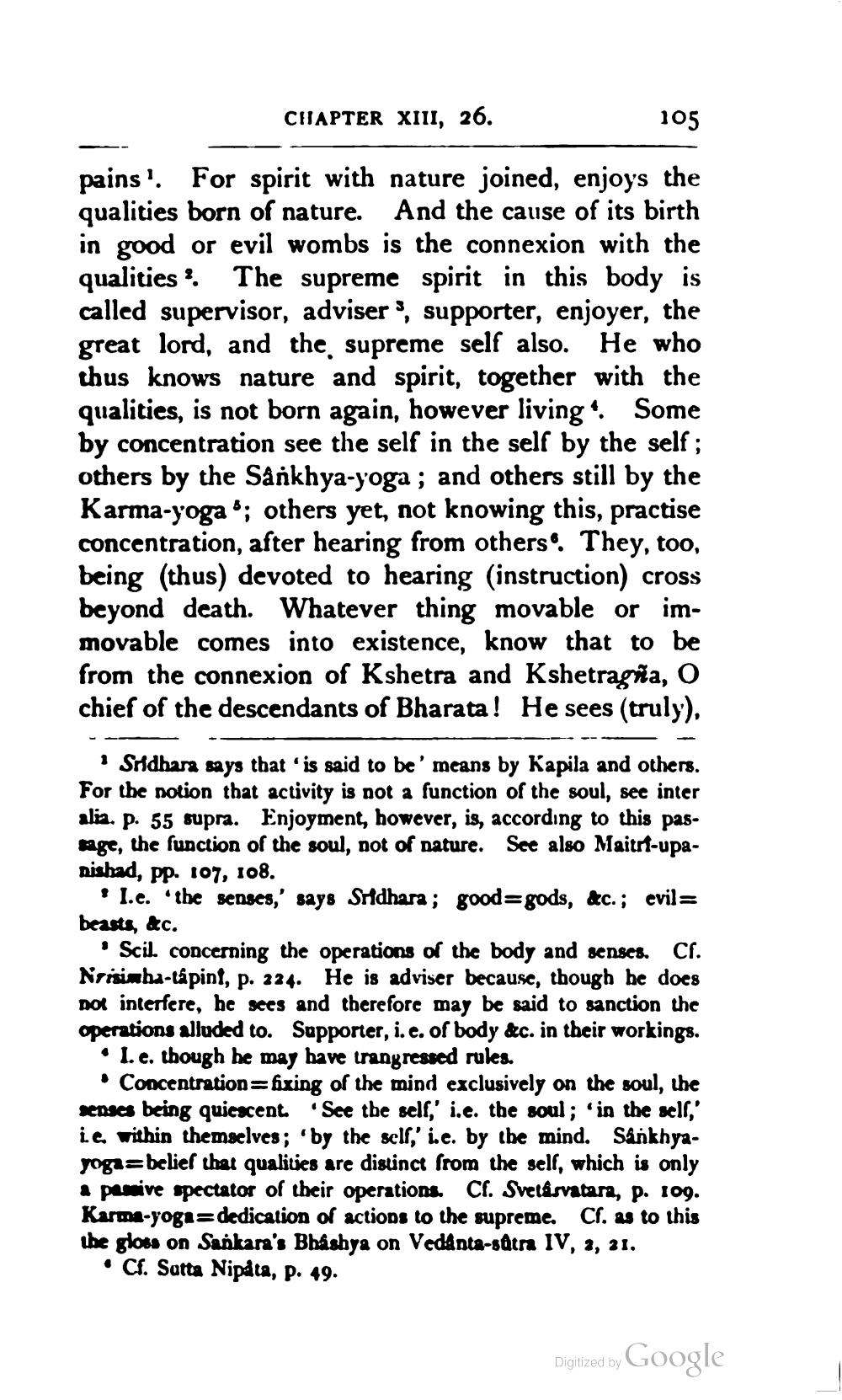________________
CHAPTER XIII, 26.
105
pains'. For spirit with nature joined, enjoys the qualities born of nature. And the cause of its birth in good or evil wombs is the connexion with the qualities. The supreme spirit in this body is called supervisor, adviser, supporter, enjoyer, the great lord, and the supreme self also. He who thus knows nature and spirit, together with the qualities, is not born again, however living. Some by concentration see the self in the self by the self ; others by the Sårkhya-yoga ; and others still by the Karma-yoga •; others yet, not knowing this, practise concentration, after hearing from others. They, too, being (thus) devoted to hearing (instruction) cross beyond death. Whatever thing movable or immovable comes into existence, know that to be from the connexion of Kshetra and Kshetragña, O chief of the descendants of Bharata! He sees (truly),
· Sidhana says that is said to be' means by Kapila and others. For the notion that activity is not a function of the soul, sec inter alia. p. 55 supra. Enjoyment, however, is, according to this pasmage, the function of the soul, not of nature. See also Maitri-upanishad, pp. 107, 108.
' I.e. the senses,' says Sidhara; good=gods, &c.; evil= beasts, &c.
• Scil concerning the operations of the body and senses. Cf. Nrisimha-câpint, p. 324. He is adviser because, though he does not interfere, he sees and therefore may be said to sanction the operations alluded to. Sapporter, i.e. of body &c. in their workings.
• I.e. though he may have iranyressed rules.
• Concentration=fixing of the mind exclusively on the soul, the renses being quicscent. "See the sell,' i.e. the soul ; 'in the sell,' ie within themselves; 'by the self,' i.e. by the mind. Sankhyayoga=belief that qualities are distinct from the sell, which is only a passive spectator of their operations. Cl. Svecasvatan, p. 109. Karma-yoga=dedication of actions to the supreme. Cf. us to this ibe gloss on Sankara's Bhashya on Vedanta-sâtn IV, 3, 21.
• Cl. Satta Nipala, p. 49.
Digitized by Google




